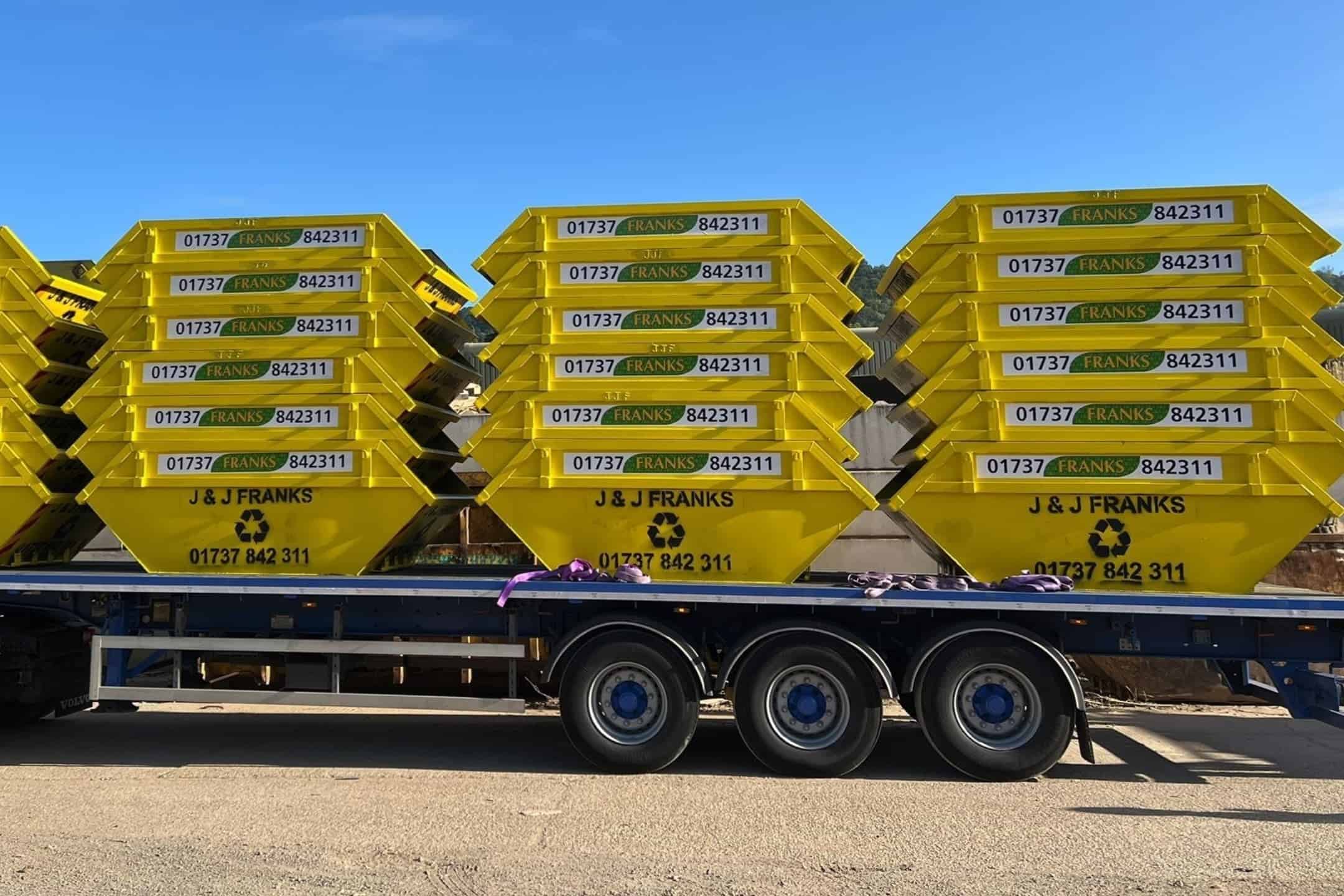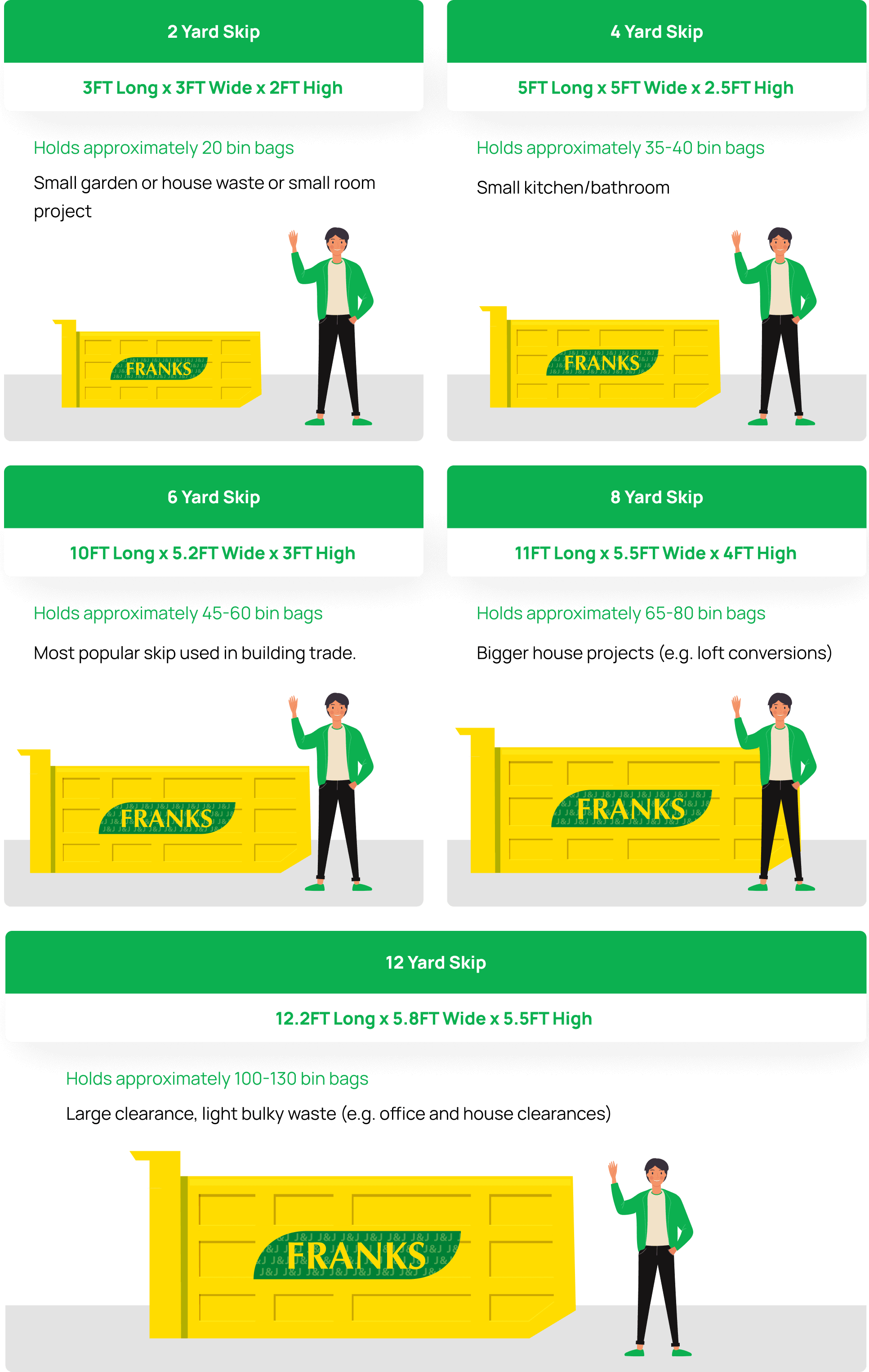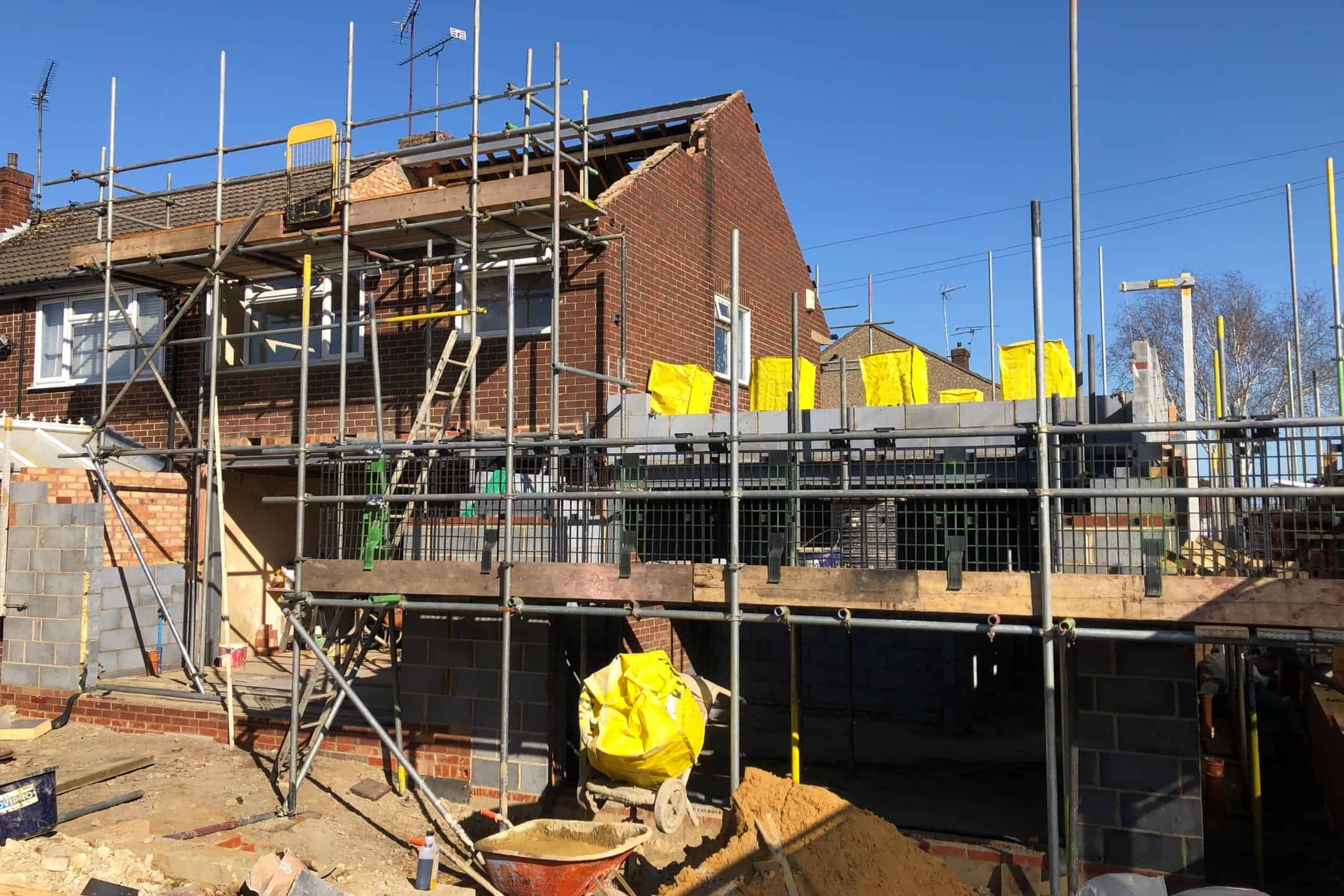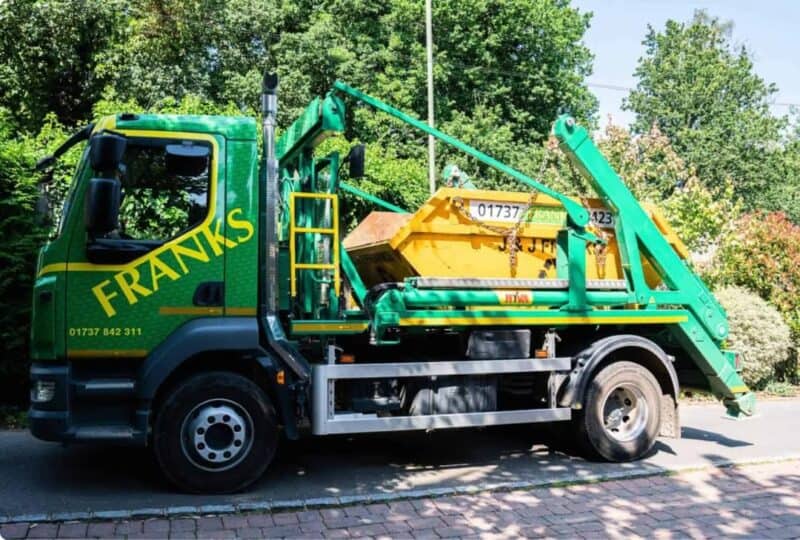Planning a house extension is an exciting venture, adding more space and value to your property. However, managing the waste generated during the project is a crucial aspect that should not be overlooked. From bricks and concrete to old fixtures and packaging, house extensions create a significant amount of debris that must be disposed of efficiently. This is where skip hire comes in as an essential service to simplify your project. At J&J Franks, we understand the importance of effective waste management for house extensions and offer a fleet of skips for hire, tailored to your needs.
Why Is Skip Hire Essential for a House Extension Project?
Skip hire is essential for any house extension project due to the sheer volume and variety of waste generated. House extensions involve demolition, renovation, and new construction, all of which produce different types of waste, such as concrete, wood, metal, and general building rubble. By hiring a skip, you have a centralised location to dispose of all this waste, making the site cleaner and more organised.
Hiring a skip also saves time and effort. Without a skip, you would have to make numerous trips to the local waste facility, which is both time consuming and costly. With a skip on-site, waste can be disposed of immediately, keeping the work area clear and reducing the risk of accidents. Moreover, using a professional skip hire service like J&J Franks ensures that the waste is disposed of responsibly, adhering to environmental regulations and promoting sustainability through recycling.

What Types of Waste Can Be Disposed of Using Our Skips?
A house extension generates a variety of waste types, and it is crucial to know what can and cannot be disposed of in a hired skip. Generally, most types of construction and renovation waste can be placed in skips. This includes:
- Concrete and Rubble: Demolition of walls, floors, or patios often produces substantial amounts of rubble. These materials can be bulky and heavy, making a skip an ideal solution for disposal.
- Wood and Timber: Old wooden fixtures, offcuts, and timber from walls or flooring can be easily disposed of in a skip.
- Metal: Scrap metal from structural changes or removed fittings can be recycled when disposed of correctly in a skip.
- Plastics and Packaging: A variety of plastic materials, from protective sheeting to packaging for new fixtures, can also be thrown into skips.
- Soil and Green Waste: If your extension involves landscaping or changes to your garden area, skips can accommodate soil, grass, branches, and other organic waste.
However, it is important to note that not all materials are allowed in skips. Hazardous waste such as asbestos, electrical appliances, batteries, and certain chemicals require specialised disposal methods. At J&J Franks, we provide clear guidelines on what can and cannot be disposed of in our skips to ensure safe and compliant waste management.
How Do You Choose the Right Size Skip for Your House Extension?
Choosing the right size skip for your house extension is crucial to managing waste efficiently and keeping costs down. Skips come in a range of sizes, and selecting the right one depends on the scope of your project and the amount of waste it is expected to generate.
For smaller house extensions, such as adding a conservatory or a small room, a 2-6 yard skip might be sufficient. This size can accommodate small-scale demolition waste, timber, and general debris.
For medium-sized projects, like a multi-room extension, a 8 yard builder’s skip is more appropriate. These skips are among the most popular for construction projects as they offer a good balance between capacity and cost.
Larger house extensions or projects that involve significant structural changes might require a 12 yard skip. These skips can hold a substantial volume of waste, making them ideal for bulky materials like bricks, metals, and concrete.
When in doubt, it’s always better to opt for a slightly larger skip. This reduces the risk of overfilling, which can lead to additional costs. Our team at J&J Franks can provide expert advice on the most suitable skip size for your project, ensuring you have the right solution in place from the start.

How Does Skip Hire Improve Safety on a House Extension Site?
Safety is essential on any construction site, including house extensions. Accumulated waste can pose significant safety hazards, from trip hazards to more serious risks like sharp objects or unstable piles of debris. Skip hire plays a critical role in maintaining a safe working environment by providing a centralised disposal point.
By having a designated place to dispose of waste, workers are less likely to leave debris scattered around the site, reducing the risk of accidents. A clean and organised site not only enhances safety but also improves workflow, as tradespeople can move around more freely without obstruction.
Furthermore, using a professional skip hire service ensures that waste is regularly removed, preventing the build-up of potentially hazardous materials. At J&J Franks, we ensure that skips are delivered and collected promptly, maintaining a clean and safe environment throughout your project.
A house extension is a significant undertaking, and effective waste management is crucial to its success. Skip hire simplifies waste disposal, making the project more efficient, safer, and compliant with environmental regulations. At J&J Franks, we provide a range of skips tailored to your specific needs, from small-scale extensions to larger projects. Our experienced team is here to help you choose the right size skip and guide you through the process to ensure your house extension runs smoothly.
For more information on our skip hire services and to find out how we can assist with your house extension, contact us today. Let us help you keep your project on track and manage waste effectively.








